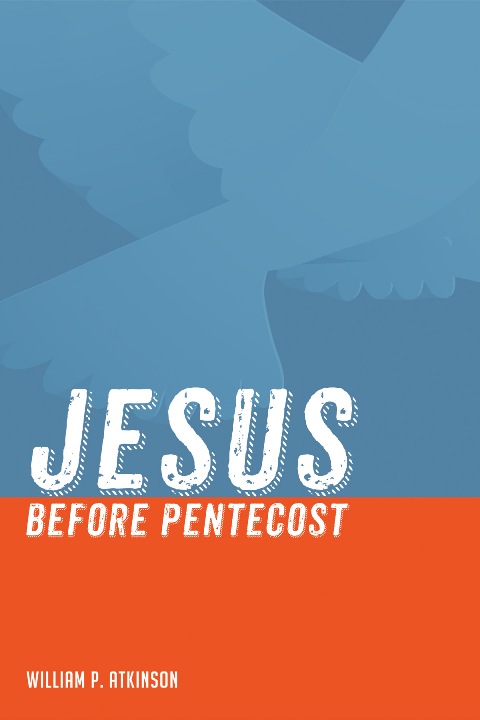William Atkinson: Jesus before Pentecost
 William P. Atkinson, Jesus before Pentecost (Eugene, OR: Cascade Books, 2016), 222 pages.
William P. Atkinson, Jesus before Pentecost (Eugene, OR: Cascade Books, 2016), 222 pages.
Unapologetically Pentecostal, Atkinson, an ordained minister, presents Jesus through the eyes of a Pentecostal believer as well as through the eyes of a scholar (Edinburgh)—that is, as a theological historian he views Jesus in the “then and there,” while as a Pentecostal, he views Jesus in the “here and now” (1).
I have watched over a seven-year span (four books) as Atkinson has fine-tuned his writing skills. As I read Jesus Before Pentecost, though certainly scholarly, at times it was as if I was reading a devotional (as space permits, I will include such passages).
This latest book looks at the well-known Pentecostal pillars of Jesus as savior, healer, baptizer in the Spirit, and soon-coming King. He acknowledges the five-fold pattern which includes Jesus as sanctifier, but chooses to examine the four-square “rubric,” as that is the pattern of his own tradition (UK-based Elim Pentecostal Church). He accurately notes that this four-square gospel foundation of Pentecostalism exposes the “inaccurate criticism” that Pentecostals are Spirit-centered and give short shrift to Jesus.
It is Atkinson’s contention that “someone who looks at Jesus through Pentecostal eyes thereby gains helpful insight by means of that perspective” (7). If, as he believes, “what you see depends on where you are looking from” (40), this brings certain things to the foreground, such as the miraculous healing ministry of Jesus and his anointing of God’s Spirit.
Before delving into the attributes of Jesus under the four-square pattern, Atkinson defends the use of the Gospel of John as the primary source of truth about the historical Jesus. Atkinson wishes to draw his picture of Jesus from ancient eyes, so eyewitness testimony is paramount, especially what the witnesses say that Jesus said about himself.

William P. Atkinson
Atkinson carefully builds a case that supports the use of John. Given the evidence from John (19:25–26; 20:2–5), he concludes “It is a deep irony … that the fourth gospel appears as little more than a footnote in major studies of Jesus’ history” (16). In addition to the gospels and Paul, Atkinson also considers non-biblical sources such as Josephus, Quadratus, the Gospel of Thomas, and Q (as a body of oral tradition) (12ff., 34).
Savior. According to Atkinson, Pentecostalism directly assaults “pie in the sky” (my words) theology. “Salvation will not be presented in Pentecostal communities as only a hope for the life to come.” He follows with a discussion of enjoying “the benefits of God’s kingdom in their present lives” (47). Jesus is savior in many ways, for example, he saved people from the immediate threat of being drowned, he saved people from social estrangement, he saved people from physical hunger, and he saved people from God’s silence and from God’s absence (48–50). On a lighter note, “Jesus’ teaching effectively ‘saved’ listeners from the frustrations of listening to other teachers whose input seems to have smacked of hypercritical superficiality (Mark 1:22)” (50). More important, Jesus saved from Satanic bondage and divine judgment.
Category: Biblical Studies, Fall 2018


